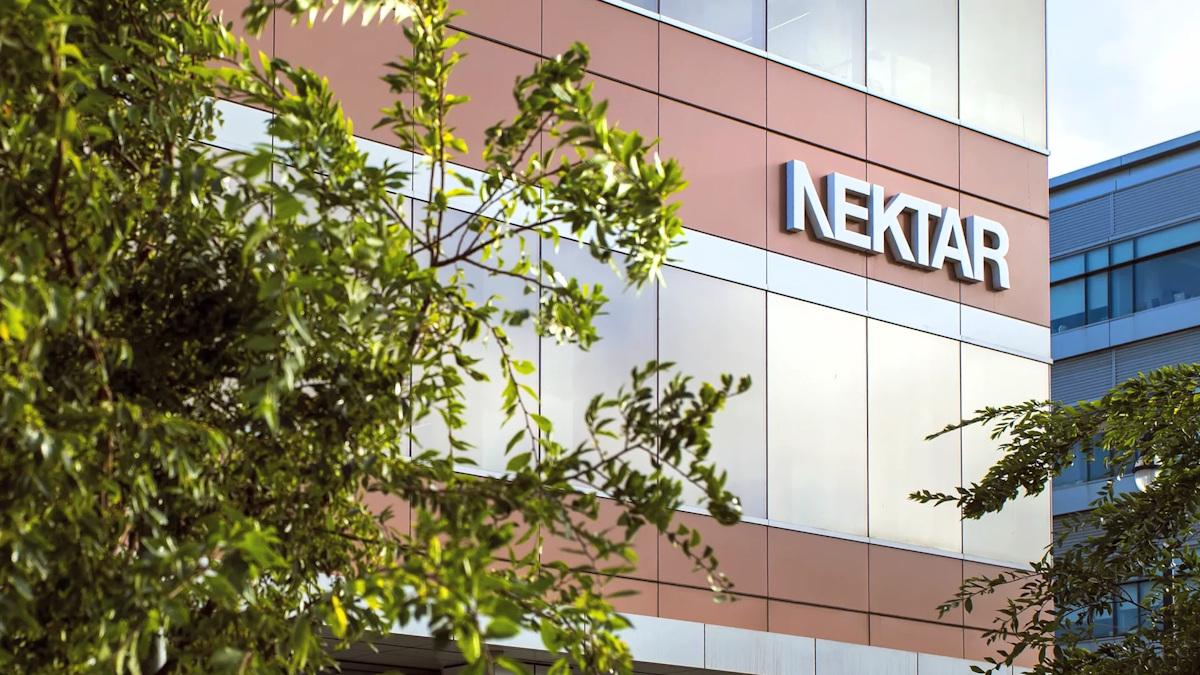Nektar eyes pivotal trials for eczema drug cast off by Lilly

Nektar Therapeutics has said phase 2b results show it was right to keep faith with rezpegaldesleukin as a therapy for atopic dermatitis (AD), also known as eczema.
Data from the REZOLVE-AD study of rezpegaldesleukin in moderate-to-severe AD showed significant improvements over placebo across a series of efficacy measures in the trial, and it now intends to discuss a phase 3 programme with the FDA to support approval as a new first-in-class treatment for the skin condition.
The confident appraisal of rezpegaldesleukin's prospects comes a couple of years after Eli Lilly handed rights to the drug back to Nektar after an analysis of phase 1b data in AD and a failed trial in systemic lupus erythematosus (SLE).
Nektar, which accused Lilly of making errors in its analysis of the data, forged ahead with the programme and started the REZOLVE-AD later in 2023, testing the drug in biologic-naïve AD patients who were unable to control the itchy and painful lesions caused by the condition using topical corticosteroids.
Fast forward to now, and Nektar says its assessment was correct. In the new readout, the highest dose of rezpegaldesleukin (24 µg/kg), given as an injection every two weeks, achieved a 61% average improvement on the Eczema Area and Severity Score (EASI) from baseline, compared to a 31% improvement in the placebo group, after 16 weeks.
Two lower doses – 18 µg/kg given every two weeks and 24 µg/kg administered once every four weeks – also showed significant improvements of 58% and 53%, respectively.
At all three doses, Nektar's drug was significantly better than placebo at achieving 50% and 75% improvements on the EASI scale, while the high dose group also outperformed control on 90% improvements, with 25% and 17% of patients, respectively, hitting that endpoint.
Meanwhile, the two higher doses were also significantly better at alleviating itch, one of the most bothersome symptoms of AD.
The treatment of moderate-to-severe AD has been revolutionised by new treatments, particularly Sanofi and Regeneron's IL-4 and IL-13 inhibitor Dupixent (dupilumab), which dominates the biologic segment of the market.
Other recent entrants in the increasingly crowded market include Galderma's Nemluvio (nemolizumab), Almirall's Ebglyss (lebrikizumab), and Leo Pharma's Adtralza (tralokinumab) – all IL-13 inhibitors – along with a clutch of oral JAK inhibitors including Eli Lilly's Olumiant (baricitinib), AbbVie's Rinvoq (upadacitinib), and Pfizer's Cibinqo (abrocitinib).
Breaking into that could be a challenge for Nektar, but the company said in a statement that the rapid improvement in EASI scores and reduction of itch in REZOLVE-AD "show potential differentiation of this novel regulatory T-cell mechanism as a first and best-in-class immune-modulator."
The company also pointed to a low rate of discontinuations and no increased risk of conjunctivitis, oral ulcers, or infections – all potential side effects with other biologics – in the study. There was quite a high rate of injection site reactions, however, which analysts at William Blair said could be a "commercial liability" versus Dupixent.
Nektar is now preparing for an end-of-phase 2 meeting with the FDA to discuss the protocol for phase 3 testing, as well as top-line results from a second trial of rezpegaldesleukin in follow-up indication alopecia areata that are due in December. Early next year, there will also be 52-week maintenance data from REZOLVE-AD, while other studies are planned in vitiligo, type 1 diabetes, and SLE. The company has blockbuster aspirations for the drug if it scores in at least some of those follow-up indications.
"We believe that the REZOLVE-AD study results clearly demonstrate that Nektar has established a new biology and harnessed the promise of Tregs as an important potential therapeutic modality to treat inflammatory skin disorders and other autoimmune conditions," said chief executive Howard Robin.


